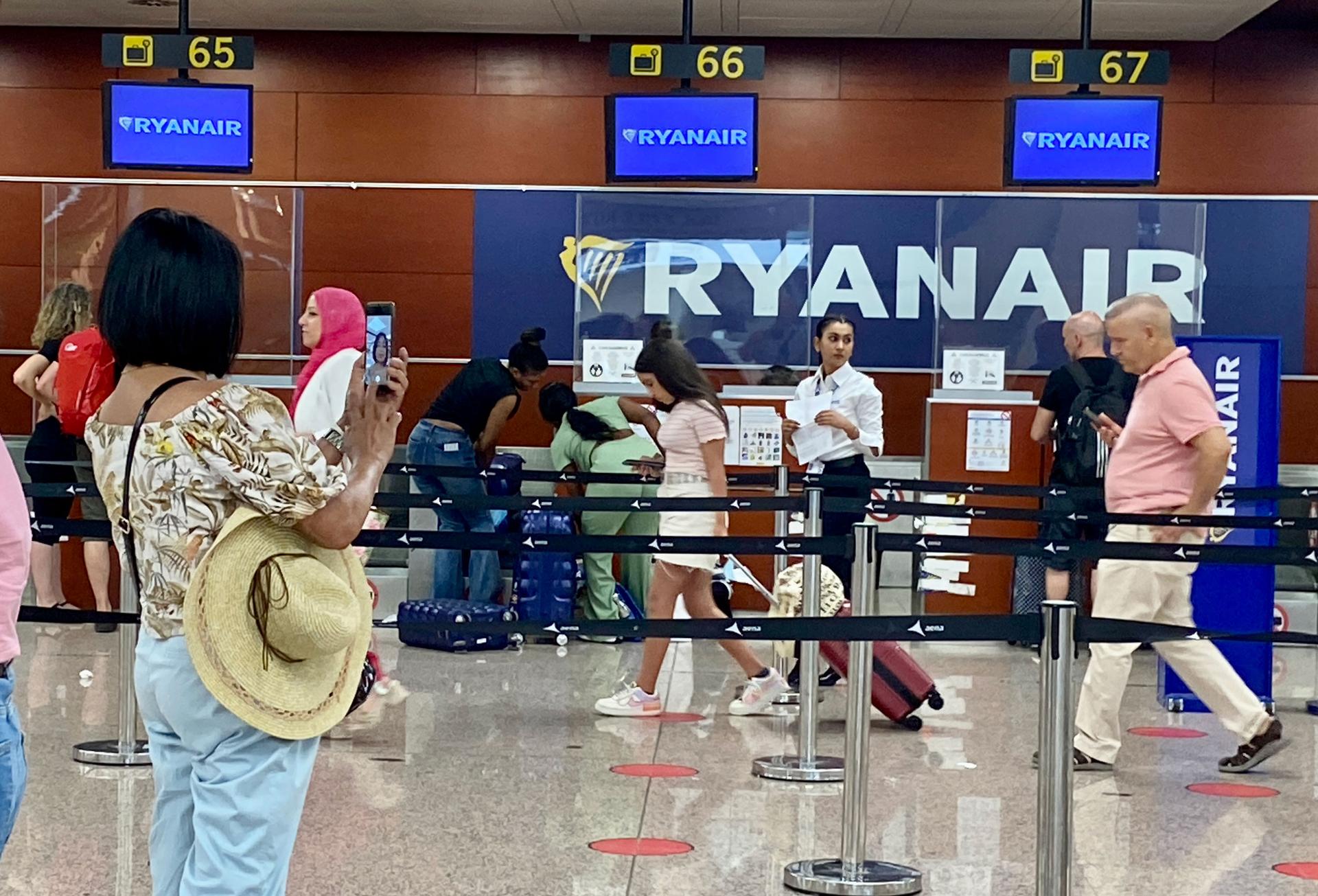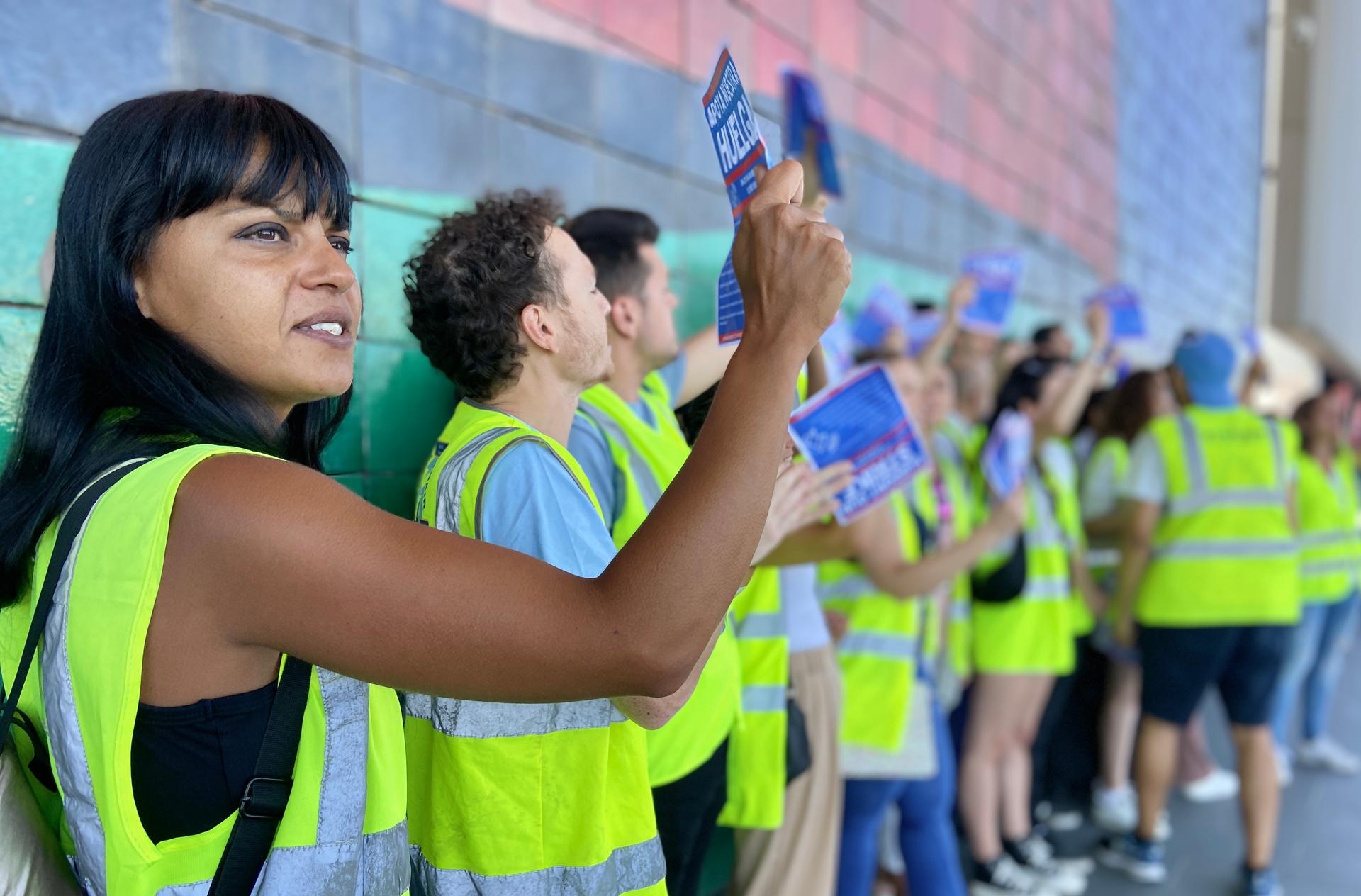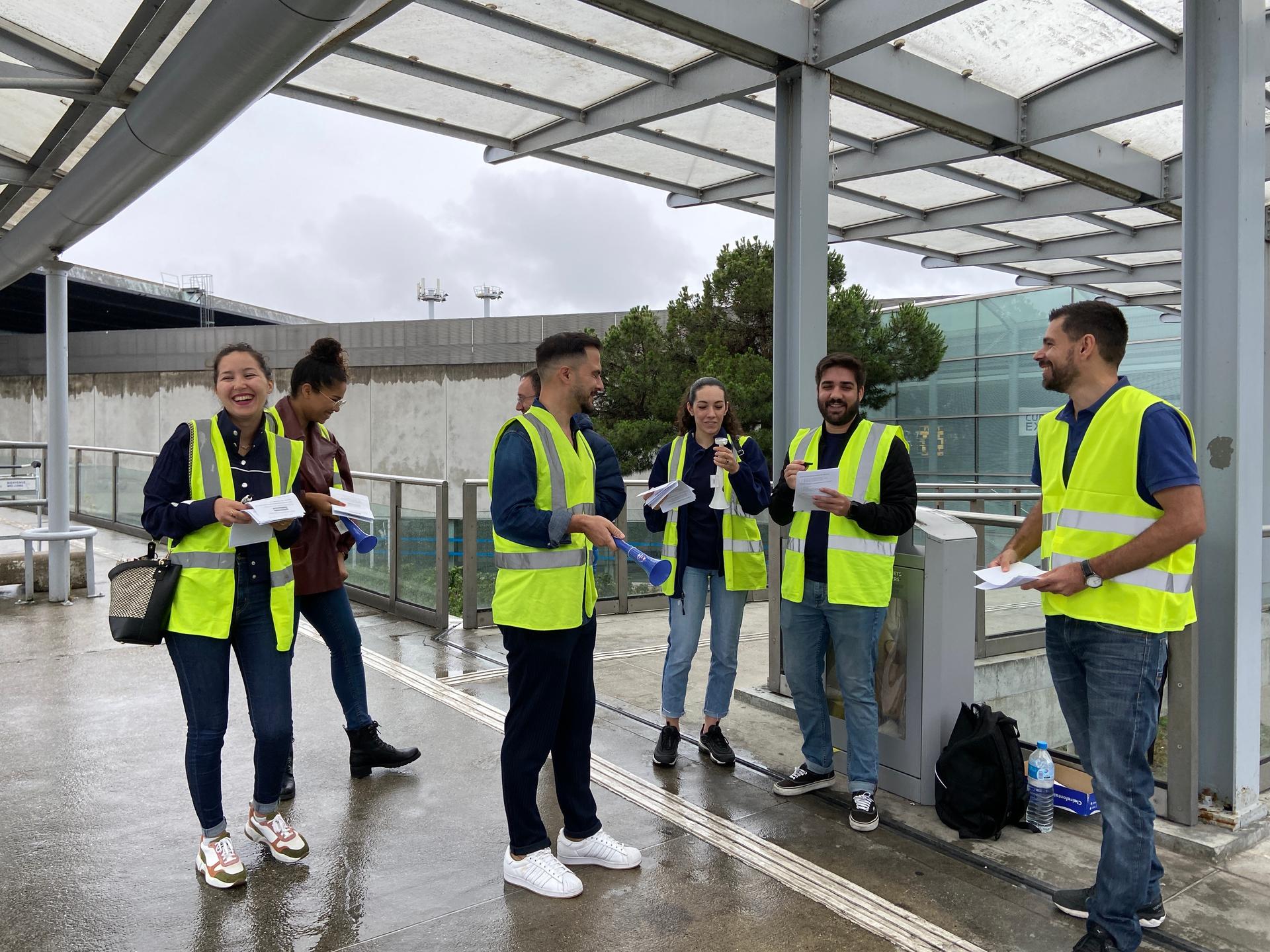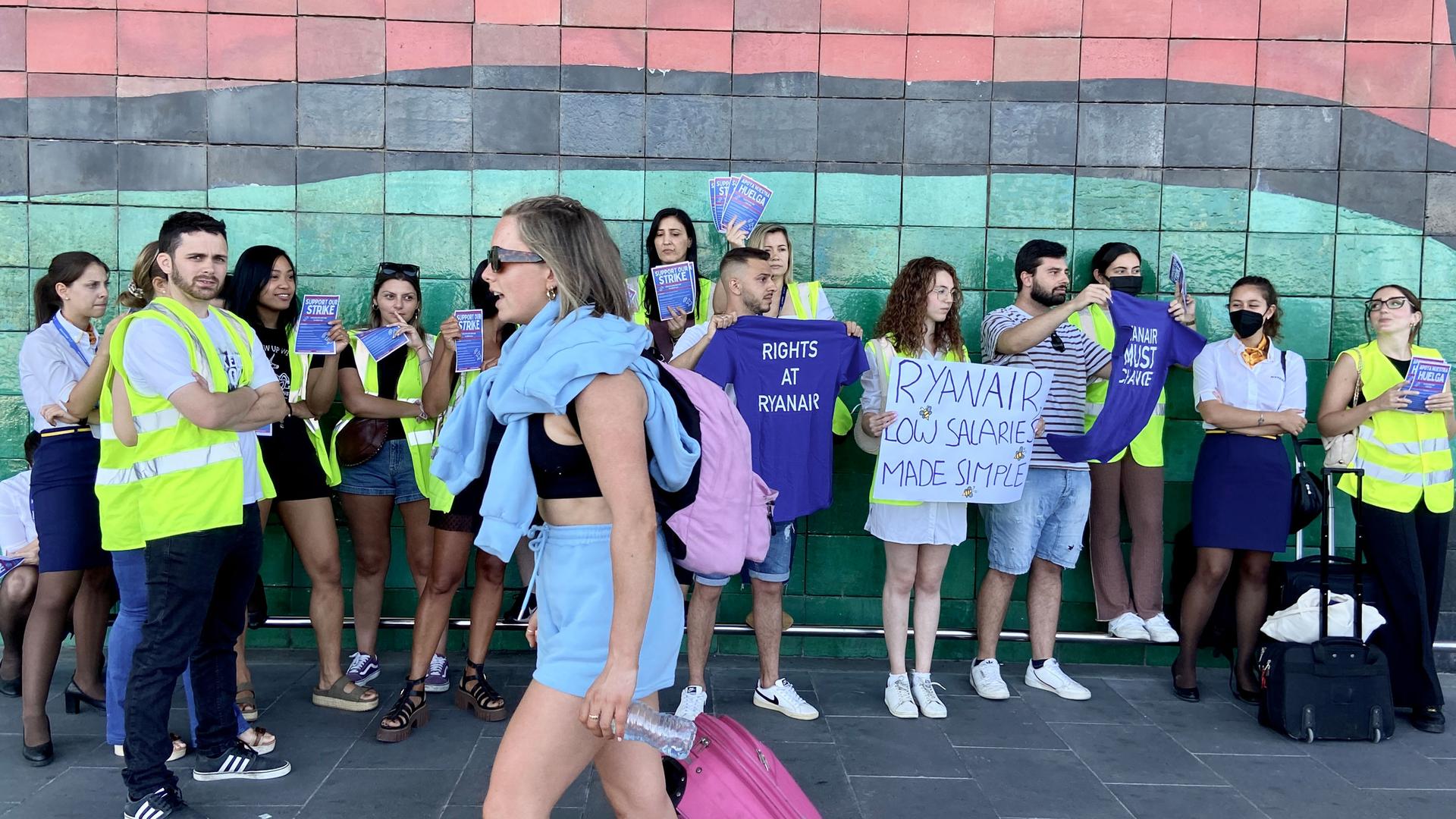Ryanair strikers protest unfair working conditions, Barcelona, Spain.
Ryanair cabin crew members gathered in front of the arrivals area at Barcelona airport on June 24 to protest against unfair labor conditions.
“They’ve lowered our base salary,” flight attendant Florencia Basenko said.
“They need to give us back what we had before COVID,” she said, “because travel is back and we’re working as hard as ever.”
As many Europeans pack up for their first summer vacations since COVID-19 restrictions were lifted this month, strikes by airline employees could threaten holiday plans.
Basenko said Ryanair cabin crew members take home about $12,000 a month and that it’s not enough to live on and cabin crews are demanding raises and better working conditions.
Friday’s strikers were a small but passionate group of about 15 people. They admit they’re not having much impact on their flights — yet.
But across Europe, walkouts by crew members of various airlines led to dozens of canceled or delayed flights.
Ryanair chief Michael O’Leary dismissed the strike before it began.

“We think these strikes have no support,” O’Leary told British TV’s Inews. “They’re the last sting of a dying wasp.”
But labor unions say this is just the beginning and that O’Leary may have underestimated their stinging power because worker discontent isn’t confined to Barcelona.
Strikes are planned all summer long.
In Bordeaux, in southwest France, Ryanair crews walked out on June 25, along with crews in Belgium, Portugal and Italy.
The airline in Bordeaux had just one bag-checker working midday on Saturday.
A line of some 500 travelers stretched across the terminal into the food court.
At the end of the line, Tony Scott and Joe Scott, from London, were trying to stay calm.
“We were anticipating a problem, but we’ll see,” Joe Scott said.

“You just assume there will be a strike wherever you’re going,” Tony Scott said, “and then you get stoical about it.”
Fellow traveler Gerald Deschosoix was less poised. He was supposed to present a film at a festival in Italy later that day.
“We’ve been in line for what, about 20 minutes?” he said. “And we haven’t moved at all.”
For travelers, the delays and chaos will likely worsen as peak tourist season arrives.
The problem extends beyond strikers and short-staffed airlines. Airports themselves can’t find enough workers for security and baggage handling.
In terminals across Europe, many staff simply haven’t returned after the long, enforced break caused by COVID-19.
Charles de Gaulle airport in Paris has 2,000 job vacancies, for example.

Barcelona economist Antonio Nuñez said the pandemic caused people to rethink their lives, and their jobs. To lure them back, he said, airlines must make work more attractive: “There’s no magic formula. The industry needs to raise workers’ wages.”
But Nuñez added that raising salaries will drive ticket prices up. Add to that today’s record inflation rates and the global spike in fuel prices, and Europe could be seeing the end of Ryanair’s model of cheap, bare-bones flights.
“We accept that our grocery bills are going up,” Nuñez said. “It will be the same with air travel.”
Europeans will eventually get used to paying more to fly, he said, or they’ll find other ways to travel. But for this summer, unless unions and airlines shake hands fast, vacationers will most likely suffer delays, chaos and cancellations.
Related: Barcelona is one of Europe’s loudest cities. It’s trying to turn down the volume.
